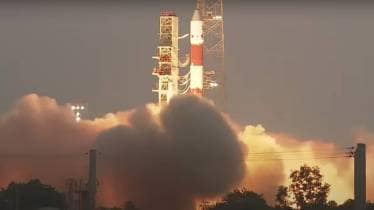The Indian Space Research Organisation (ISRO), the nation’s premier space agency, has been achieving great strides in the field of space technology and exploration. Over the last decade, the humble space agency has achieved new heights with landmark missions, cementing itself as a premier entity among space-faring nations of the world. The Chandrayaan missions have established India as a key player in the race to the Moon and with Gaganyaan missions aiming to take humans to space, the allure of being a part of ISRO only gets more tempting.
ISRO offers diverse opportunities for engineers and scientists across various disciplines. For students dreaming of a career in space and contributing to India’s ambitious space missions, a clear pathway exists, typically beginning right after Class 10.
The foundational step for aspiring space professionals is to opt for the science stream in Classes 11 and 12, with Physics, Chemistry, and Mathematics (PCM) being essential subjects.
Hence, as hordes of students wish to pursue new academic paths this year, we have listed the ideal subjects that young aspirants should pursue in order to achieve their dream of being among the stars.
Pathways to ISRO
Undergraduate Degrees:
A Bachelor of Technology (BTech) or Bachelor of Engineering (BE) is the minimum requirement for most technical positions. Recommended specialisations include Mechanical, Electronics and Communication, Electrical, Computer Science, or Aerospace Engineering. For those inclined towards research, a Bachelor of Science (BSc) in Physics, Mathematics, or Astronomy, followed by a Master’s degree, also serves as a viable entry point.
Postgraduate and Doctoral Studies:
For advanced research roles or specialised positions, a Master’s (MTech/ME/MSc) or a PhD in relevant fields significantly enhances a candidate’s prospects.
Key disciplines for space careers:
ISRO’s work spans a broad spectrum of scientific and engineering domains. Aspiring candidates should focus on fields such as:
- Mechanical Engineering
- Electronics and Communication Engineering
- Computer Science
- Aerospace Engineering
- Physics
- Mathematics
- Astronomy
- Remote Sensing and Geographic Information Systems (GIS)
Recruitment process:
The primary recruitment method for technical roles at ISRO is through the ISRO Centralised Recruitment Board (ICRB) exam. This rigorous process typically involves a written test followed by an interview. Those who qualify are eligible for admission to the top institutes for technical studies in India.
Top institutes for space education in India:
Indian Institute of Space Science and Technology (IIST), Thiruvananthapuram:
Directly supported by ISRO, IIST is a top choice, offering specialised undergraduate, postgraduate, and doctoral programs in space science and technology.
Indian Institutes of Technology (IITs) and National Institutes of Technology (NITs):
These prestigious institutions also offer a wide range of relevant engineering and science programs for aspiring space technology candidates.
Indian Institute of Remote Sensing (IIRS):
IIRS provides valuable outreach and e-learning programs focused on remote sensing, GIS, and related applications, crucial for many ISRO projects.
Beyond formal degrees, ISRO also offers various academic programs and internships, providing students at different levels with hands-on experience and exposure to the organisation’s cutting-edge work.
